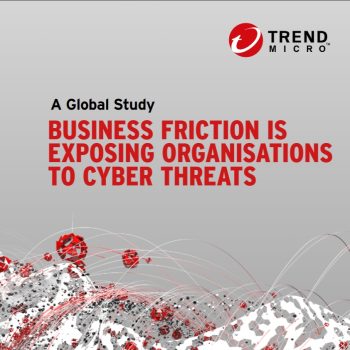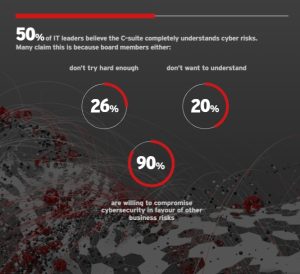
A high willingness to compromise contradicts the fact that cybercrime is seen as the greatest security risk by a third of those surveyed. Trend Micro study: 92 percent of IT decision-makers make compromises when it comes to cybersecurity.
Trend Micro, one of the world's leading providers of cybersecurity solutions, published a new study today, according to which 92 percent of IT decision-makers in Germany (90 percent worldwide) state that their company is compromising in favor of digital transformation, productivity or other business goals cybersecurity.
Cyber crime is considered to be the greatest security risk
According to the study by the Japanese security provider, only half of IT decision-makers across Germany (also 50 percent worldwide) and 29 percent of business decision-makers (38 percent worldwide) trust that their company management board has sufficient knowledge in the field of cybersecurity. According to the respondents, this is due, among other things, to the complexity and volatility of the topic. In addition, 29 percent of the German study participants (26 percent worldwide) are of the opinion that the executive board does not try enough to understand the topic or sometimes does not want to understand it at all. The latter is assumed in Germany and worldwide as much as 20 percent.
There is disagreement between IT and business decision-makers about who is ultimately responsible for risk management and optimization. IT decision-makers refer almost twice as often as their business counterpart to the IT team and the CISO (Chief Information Security Officer). At 51 percent, more than half of the respondents from Germany (49 percent worldwide) stated that cyber risks are still viewed as an IT issue and not as a business risk. This discrepancy leads to serious problems: 45 percent of all German respondents (52 percent worldwide) rate their company's attitudes towards cyber risks as inconsistent and fluctuating from month to month.
Surveys and attitudes don't go together

Boardrooms have different priorities and are therefore willing to compromise on cybersecurity (Image: Trend Micro).
Nevertheless, 33 percent of the study participants in Germany (31 percent worldwide) see a lack of cybersecurity as the most important business risk today. A full 57 percent (66 percent worldwide) expect cyberattacks to have the greatest financial consequences of all the business risks mentioned - followed by theft of intellectual property. This result seems contradictory, considering the comparatively high willingness to compromise on the subject of security.
Respondents see several factors that would help make cybersecurity more prominent at board level
- A security incident with data leakage in the company (Germany 64 percent, worldwide 62 percent).
- A more detailed database in order to better report on the business risk from cyber threats and to be able to explain the topic more easily (Germany and 62 percent worldwide).
- Customers are calling for a higher level of security (Germany 65 percent, worldwide 61 percent).
“A full 80 percent of German IT decision-makers do not speak openly with their board members about security for fear of repeating themselves or appearing too negative. Almost a quarter say that this represents constant pressure for them. However, this development leads to a vicious circle in which management does not recognize the actual cyber risk to which they are exposed, ”said Richard Werner, Business Consultant at Trend Micro, about the results of the study. "We need to talk about security risks in a way that recognizes the issue as fundamental to business growth and also engages IT and corporate decision-makers who are really fighting for the same cause."
About the Study
For the study, Sapio Research interviewed a total of 5.321 IT and business decision-makers from companies with more than 250 employees in 26 different countries - 209 in Germany. These include various positions from Vice President (7 percent), C-Level (20 percent) and management (18 percent) to management (55 percent).
More at TrendMicro.com
About Trend Micro As one of the world's leading providers of IT security, Trend Micro helps create a secure world for digital data exchange. With over 30 years of security expertise, global threat research, and constant innovation, Trend Micro offers protection for businesses, government agencies, and consumers. Thanks to our XGen™ security strategy, our solutions benefit from a cross-generational combination of defense techniques optimized for leading-edge environments. Networked threat information enables better and faster protection. Optimized for cloud workloads, endpoints, email, the IIoT and networks, our connected solutions provide centralized visibility across the entire enterprise for faster threat detection and response.
